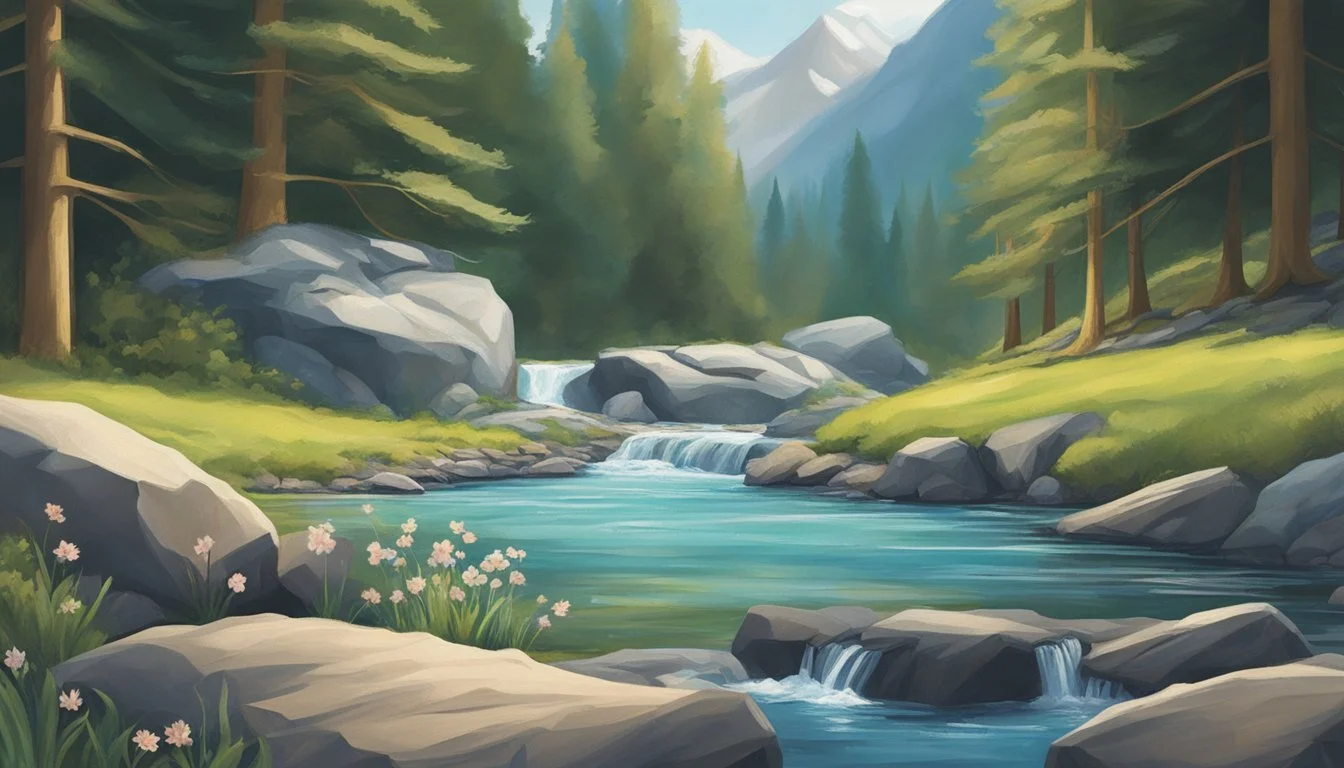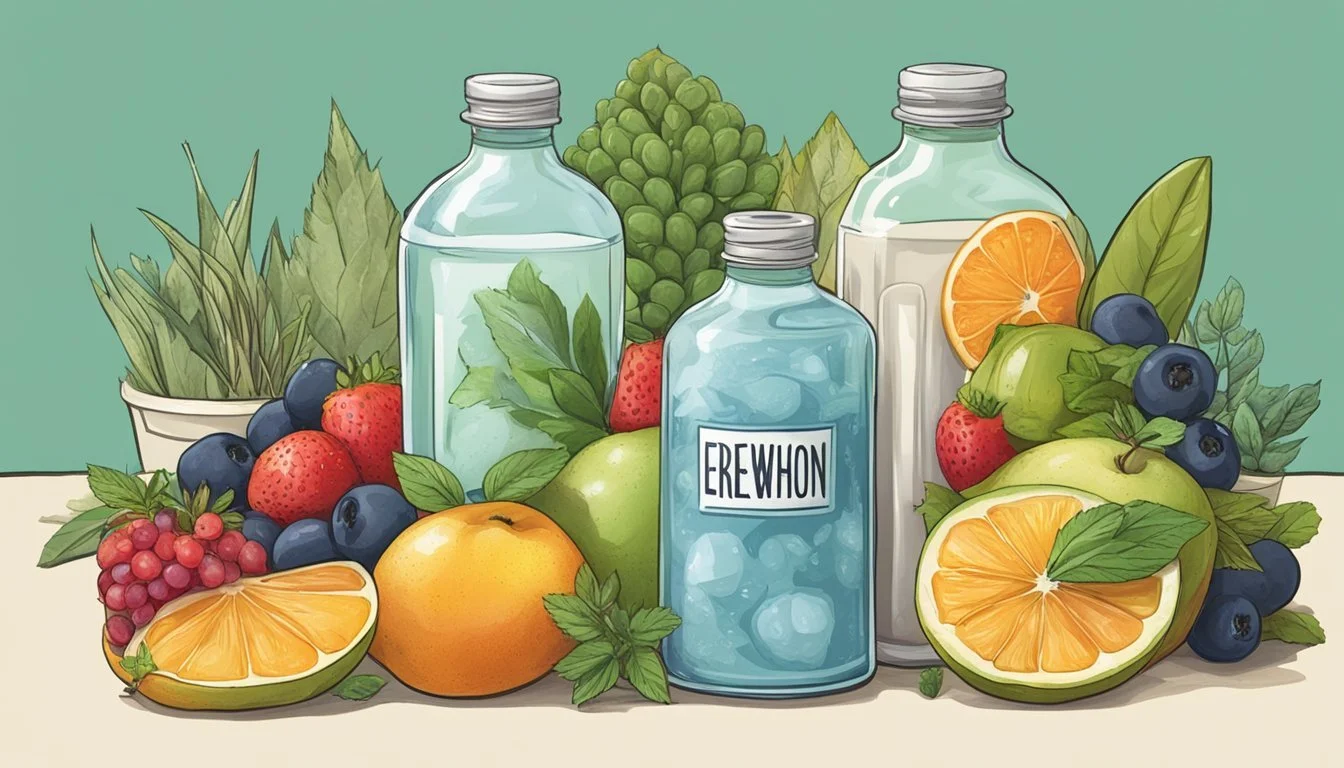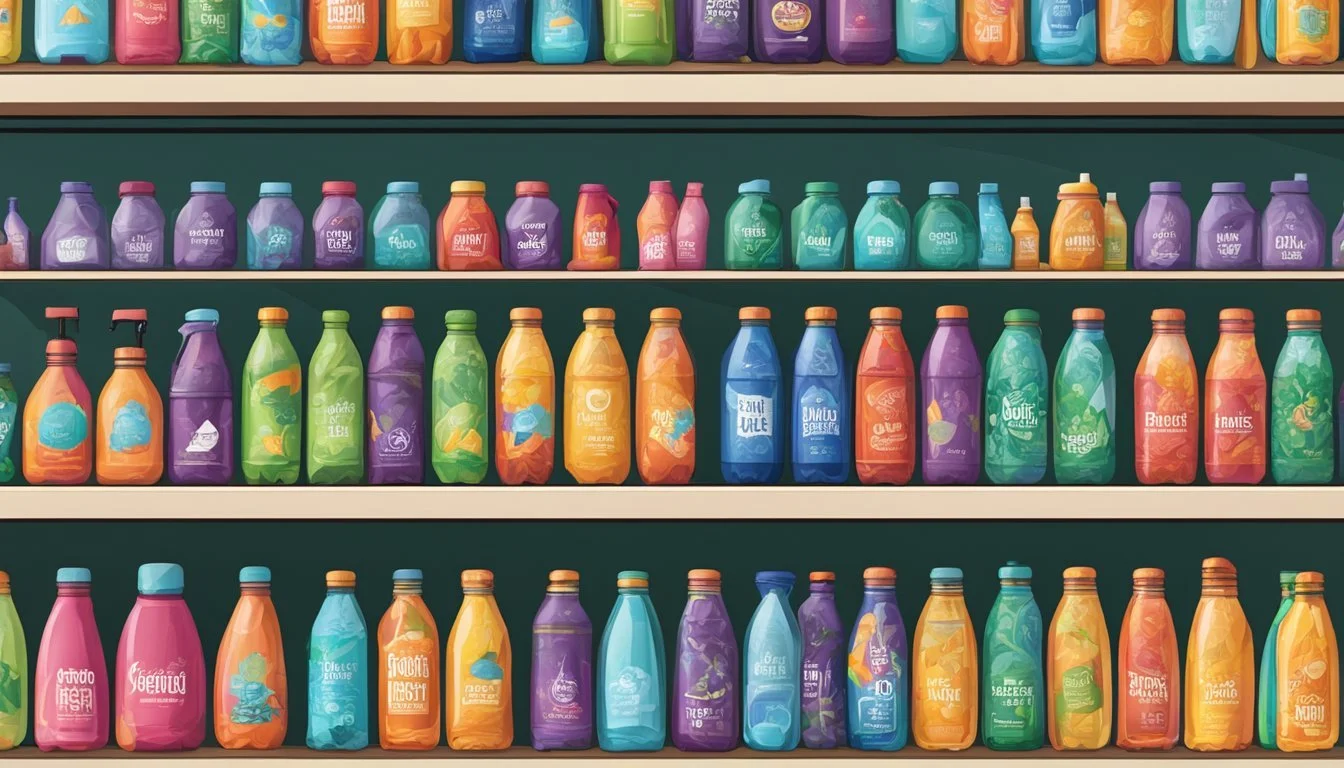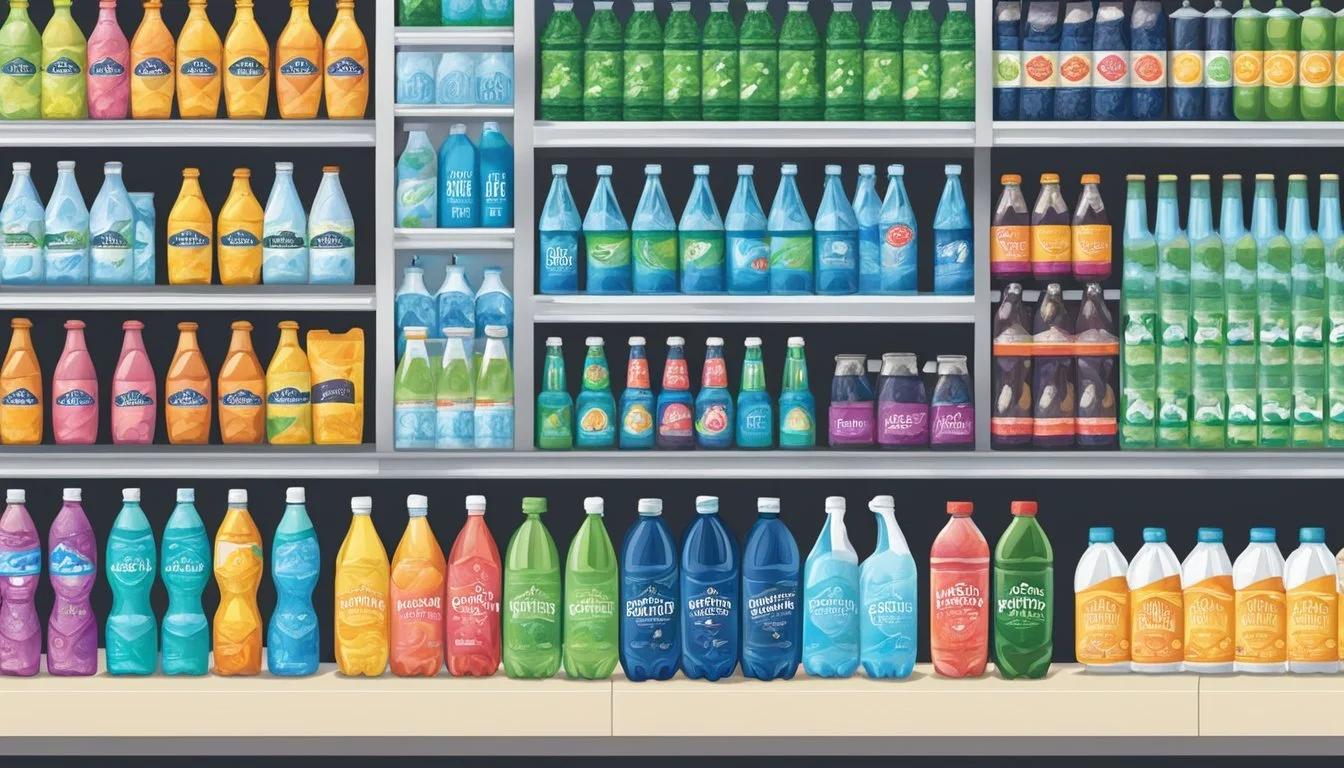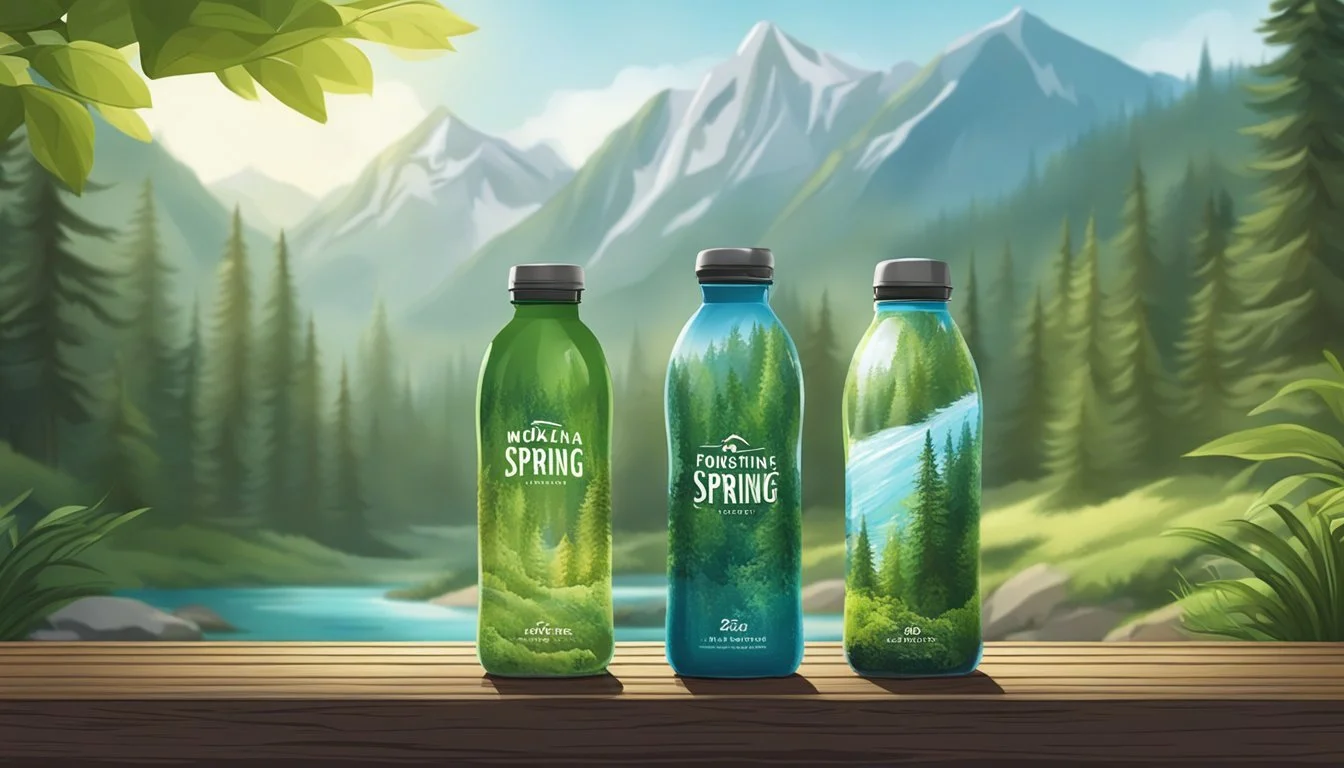Erewhon vs. Liquid Death
Which Bottled Water Reigns Supreme?
When comparing bottled waters, two brands that stand out are Erewhon and Liquid Death. Erewhon, known for its high-quality, natural ingredients, has built a reputation for purity and wellness. Liquid Death, on the other hand, offers both flat and carbonated options with a unique branding twist that emphasizes sustainability.
Erewhon's bottled water is sourced from pristine locations and often marketed to health-conscious consumers who prioritize natural and organic products. In contrast, Liquid Death packages its water in aluminum cans, which are touted as being more environmentally friendly than plastic bottles. This aspect particularly appeals to individuals concerned with reducing their carbon footprint.
Both brands cater to different market segments. Erewhon targets those seeking premium, pure, and health-centric water, while Liquid Death attracts a crowd that values environmental sustainability and edgy marketing. Ultimately, the choice between Erewhon and Liquid Death depends on personal preferences and values related to health and eco-friendliness.
Brand Overview
Erewhon and Liquid Death both cater to the modern consumer, but they have distinct origins and philosophies. Erewhon emphasizes organic and sustainable practices, while Liquid Death focuses on bold branding and environmentally friendly packaging.
Erewhon: Origin and Ethos
Erewhon started as a small health food store in Boston in the 1960s. It is known for promoting organic and sustainable products. The brand targets consumers who prioritize health and wellness in their lifestyle.
Erewhon sells a variety of items, including bottled water, sourced from pristine locations. They ensure minimal environmental impact through sustainable practices. The company has built a reputation for transparency and dedication to high-quality products, appealing especially to environmentally conscious consumers.
Liquid Death: Branding and Philosophy
Liquid Death, launched in 2019, has quickly become a recognizable name due to its bold, irreverent branding. The brand’s tagline, "Murder Your Thirst," captures attention with its edgy approach. Its water is sourced from the Austrian Alps, known for its purity.
Liquid Death packages its water in aluminum cans, positioning itself as an environmentally friendly alternative to plastic bottles. The brand appeals to a younger demographic, particularly those who appreciate unconventional marketing and are environmentally conscious. Their focus on sustainability is a key part of their identity, emphasizing the importance of reducing plastic waste.
Environmental Impact
Erewhon and Liquid Death have distinct approaches to packaging and sustainability, which significantly influence their environmental footprints. Here’s a detailed comparison.
Packaging Materials
Liquid Death uses aluminum cans for its water, which are lightweight and highly recyclable. Aluminum's recyclability reduces landfill waste and demands less energy during recycling compared to plastic. This choice results in lower carbon emissions during transportation, owing to its lightweight nature.
Erewhon typically packages its water in glass bottles. Glass is infinitely recyclable and does not degrade in quality after the recycling process. Glass, though heavier, has a lower ecological footprint during production, releasing fewer toxins. The weight of glass increases fuel consumption in transportation, impacting carbon emissions.
Comparison Table:
Brand Packaging Material Recyclability Transportation Emissions Liquid Death Aluminum Cans High (nearly 100%) Low (due to light weight) Erewhon Glass Bottles Very High (100%) Higher (due to weight)
Sustainability Claims
Liquid Death promotes its sustainability by focusing on the eco-friendly nature of aluminum cans. They highlight the recyclable aspect, claiming that aluminum can be recycled indefinitely without loss of quality. This resonates with environmentally conscious consumers preferring reduction of plastic waste.
Erewhon's sustainability claims rest on its commitment to using zero plastic, opting for glass to combat plastic pollution. They emphasize the timeless recyclability of glass, promoting it as a healthier option for both the environment and the consumer. Glass is free from chemicals that could leach into water, supporting a cleaner, less toxic recycling process.
Both brands position themselves as alternatives to traditional plastic bottles, yet their methods reflect distinct environmental philosophies. Liquid Death underscores the carbon efficiency of aluminum, while Erewhon advocates for the purity and long-term sustainability of glass.
Product Varieties
Erewhon and Liquid Death offer a range of bottled water products, catering to different preferences and tastes. The main options include still and sparkling waters, along with a variety of unique flavors.
Still vs. Sparkling Water
Erewhon and Liquid Death offer both still and sparkling water variants. Liquid Death's still water is branded as "Mountain Water," while its sparkling version is simply called "Sparkling Water." Erewhon, known for its premium quality, also provides both still and sparkling water options, emphasizing purity and taste.
Sparkling water enthusiasts may compare Liquid Death's Sparkling Water to competitors like La Croix, Topo Chico, and San Pellegrino. Liquid Death's sparkling variant stands out due to its distinctive can design and robust carbonation. Erewhon’s sparkling water, while less aggressively marketed, is often praised for its fine bubbles and natural mineral content. Both brands target consumers who prioritize hydration but appreciate different approaches to presentation and flavor.
Flavor Options
Liquid Death distinguishes itself with an array of bold flavored sparkling waters. Some popular options include "Mango Chainsaw," a blend of mango and orange, and their new sweet tea, flavored with agave and B vitamins. These flavors cater to those looking for a refreshing twist on traditional sparkling water.
Erewhon, focusing on natural purity, tends to offer more subtle flavor options if any, usually sticking closer to unflavored still and sparkling waters. This appeals to consumers seeking a clean taste without additional flavors or sweeteners.
When comparing to other flavor-packed brands like La Croix and San Pellegrino, Liquid Death’s unique branding and punchy flavors provide an edgy alternative. Erewhon's simplicity, in contrast, attracts traditionalists who favor the straightforward taste of quality water without added elements.
Taste and Palatability
The taste profiles and palatability of Erewhon and Liquid Death bottled waters are essential factors for consumers. These aspects differ significantly between the two brands, influenced by elements such as carbonation levels and added flavors.
Consumer Tasting Experiences
Erewhon water is noted for its clean and crisp taste. Consumers frequently comment on its smoothness and natural mouthfeel, lacking any aftertaste. This appeals to those seeking a straightforward, refreshing hydration experience. It's especially popular among individuals who prefer pure and unadulterated water.
Liquid Death, in contrast, offers both sparkling and still varieties. The sparkling options boast a distinct carbonation that is often described as strong and fizzy, with a clear, crisp bite. Flavored versions such as Mango Chainsaw mix natural flavors like mango and orange, with a touch of agave for subtle sweetness. This creates a richer, more complex taste profile, catering to those who enjoy a bit of flavor complexity in their water.
Water Sommelier Insights
Water sommeliers offer a professional perspective on these waters. Erewhon water is often praised for its high purity and balanced mineral content, contributing to its neutral and pleasing palate. It’s described as velvety smooth, making it highly palatable for casual drinkers and connoisseurs alike.
Liquid Death, from a sommelier's perspective, stands out due to its unique branding and the experience it provides. The carbonation in the sparkling version is consistent and lively, enhancing the perceived freshness. The flavored options are intriguing due to the natural flavorings and slight sweetness, which do not overpower the inherent qualities of the water. Sommeliers appreciate the innovative approach Liquid Death brings to the market while maintaining a high-quality drinking experience.
Market Presence
Erewhon and Liquid Death have established strong market presences through their distinct retail strategies and popular recognition among consumers.
Retail Availability
Erewhon is primarily available in upscale grocery stores and health-centric chains such as Whole Foods. They emphasize quality and often focus on organic and specialty products. Erewhon’s exclusivity often makes it a preferred choice for health-conscious consumers willing to pay a premium.
Liquid Death has broadened its retail availability across mainstream outlets. Found not just in Whole Foods, but also in major retailers such as Amazon and Target, Liquid Death has positioned itself to be more accessible to a wider audience. This strategic placement reflects a diverse market penetration, ensuring visibility across various consumer segments.
Popular Recognition
Erewhon enjoys a strong brand reputation within health and wellness communities. It is often endorsed by health influencers on Instagram and favored by those seeking organic and natural products.
Liquid Death, on the other hand, leverages an edgy and unconventional marketing strategy. Its name and packaging appeal to a younger, more alternative crowd. This approach has garnered significant attention on platforms like TikTok. High-profile endorsements from celebrities such as Travis Barker have further amplified its popularity, making it a prominent brand within the beverage industry.
Both brands have effectively utilized different strategies to establish and maintain their market presences, reflecting their unique brand identities and target audiences.
Cost and Accessibility
Liquid Death and Erewhon offer premium bottled water options that are accessible in various markets.
Liquid Death is available in both sparkling and flat versions. Consumers can purchase it in six-packs or individually. It is sold directly from the company's website and at well-known retailers like 7-11, Sprouts Farmers Market, Whole Foods, and Sheetz.
Erewhon markets its bottled water through its own stores and select high-end grocery retailers. They focus on providing a luxurious water experience, often at a higher price point compared to Liquid Death.
When comparing costs:
Liquid Death:
Mountain Water: Around $1.62 per can at Target
Smart Water:
More expensive, at approximately $0.12 per fluid ounce
For those looking for cost-effective alternatives, Fiji water and tap water may offer practical solutions.
Liquid Death’s aluminum cans are also eco-friendly, being infinitely recyclable and less energy-intensive than plastic bottles, adding to its appeal for environmentally conscious consumers. Erewhon, while upscale, may not always align with everyday practicality for cost-sensitive buyers.
Both brands cater to different segments, with Liquid Death leaning towards mass accessibility and Erewhon targeting a niche market with higher price tolerance.
Consumer Choices and Trends
Consumer preferences in the bottled water market reveal interesting patterns in their quest for healthier, eco-friendly, and convenient options. Brands like Erewhon and Liquid Death are noteworthy for various reasons and offer unique alternatives in this competitive space.
Comparing Alternatives
Erewhon Bottled Water
Erewhon focuses on sourcing high-quality, naturally filtered spring water. This brand appeals to consumers who prioritize purity and natural mineral content. Packaged mainly in glass bottles, Erewhon aims to minimize plastic use, aligning with environmentally conscious buyers.
Liquid Death
Liquid Death, on the other hand, markets its water in aluminum cans, which are more recyclable than plastic. Known for its edgy branding, Liquid Death appeals to a younger demographic. Available in flat and sparkling varieties, the brand has disrupted the bottled water market by positioning itself as an eco-friendly choice that can compete with traditional energy drinks and iced teas.
In summary, while Erewhon emphasizes purity and environmental impact, Liquid Death stands out for its innovative packaging and marketing strategy.
Corporate Responsibility and Ethics
Erewhon and Liquid Death are both committed to environmentally friendly practices.
Erewhon emphasizes sustainability by sourcing water from pristine locations and using BPA-free bottles. Their focus on organic and natural products ensures that their operations are aligned with ecological values.
Liquid Death, on the other hand, uses aluminum cans which are infinitely recyclable.
This choice conserves resources and reduces plastic waste. Their edgy branding does not overshadow their commitment to the environment.
Both companies also promote transparency regarding their sources and production processes. They strive to ensure that their practices do not harm the environment.
Erewhon engages in community outreach programs and educational initiatives to promote sustainability.
Liquid Death, aligning with its mission, often highlights the environmental impact of plastic bottles and encourages consumers to make more sustainable choices.
Comparatively, Erewhon's commitment to glass and BPA-free plastic contributes to reducing harmful chemicals in consumer products.
These efforts showcase a strong stance on corporate responsibility and ethics in the bottled water industry.
Table of Features:
Feature Erewhon Liquid Death Packaging Material Glass, BPA-free plastic Aluminum Sustainability Focus Sourcing, natural ingredients Recycling, reducing plastic Environmental Initiatives Community outreach, education Advocacy against plastic waste Corporate Transparency High High
More About Erewhon
Erewhon vs Kirkland Signature: Which Bottled Water is Better?
Erewhon vs Richard's Rainwater: Which Bottled Water is Better?
Erewhon vs Whole Foods Italian Still Mineral water: Which Bottled Water is Better?
Icelandic Glacial vs Erewhon: Which Bottled Water is Better?
Mountain Valley Spring Water vs Erewhon: Which Bottled Water is Better?
More About Liquid Death
Aqua Carpatica vs Liquid Death: Which Bottled Water is Better?
Core Hydration vs Liquid Death: Which Bottled Water is Better?
Hawaii Volcanic vs Liquid Death: Which Bottled Water is Better?
Hawaiian Springs vs Liquid Death: Which Bottled Water is Better?
Ice Mountain vs Liquid Death: Which Bottled Water is Better?
Icelandic Glacial vs Liquid Death: Which Bottled Water is Better?
Liquid Death vs Cascade Mountain: Which Bottled Water is Better?
Liquid Death vs Crystal Geyser: Which Bottled Water is Better?
Liquid Death vs Crystal Lake: Which Bottled Water is Better?
Liquid Death vs Essence pH10: Which Bottled Water is Better?
Liquid Death vs Kirkland Signature: Which Bottled Water is Better?
Liquid Death vs Proud Source: Which Bottled Water is Better?
Liquid Death vs Richard's Rainwater: Which Bottled Water is Better?
Liquid Death vs Simple Truth: Which Bottled Water is Better?
Liquid Death vs Talking Rain AQA: Which Bottled Water is Better?
Liquid Death vs Whole Foods 365: Which Bottled Water is Better?
Liquid Death vs Whole Foods Italian Still Mineral water: Which Bottled Water is Better?
Mountain Valley Spring Water vs Liquid Death: Which Bottled Water is Better?
Nestle Pure Life vs Liquid Death: Which Bottled Water is Better?
Poland Spring vs Liquid Death: Which Bottled Water is Better?
Purely Sedona vs Liquid Death: Which Bottled Water is Better?
San Pellegrino vs Liquid Death: Which Bottled Water is Better?
Solan de Cabras vs Liquid Death: Which Bottled Water is Better?
Zephyrhills vs Liquid Death: Which Bottled Water is Better?a


